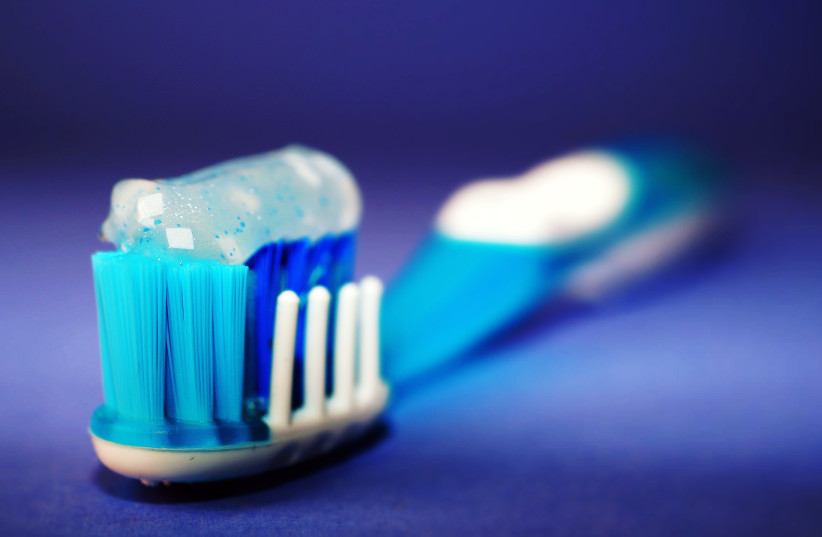Everyone knows how important brushing teeth is to protect teeth and the mouth, and to prevent infections which can harm your health. Yet in order for brushing to do all this good, it's important to do it right, and above all to make sure that your toothbrush is doing its job.
Dr. Ariel Savion, dentist and director of the Savion Medical Center in Rishon Lezion, explained that clinical studies show that a new toothbrush removes more plaque than a worn-out toothbrush, more effectively maintains the cleanliness of teeth and prevents health problems.
The American Dental Association (ADA) recommends replacing a toothbrush every three to four months, or sooner if the bristles have worn out or changed shape.
Savion said that the main reason for frequent replacement is that no matter what type of toothbrush it is, the fibers wear out over time and lose their effectiveness. As a result, the quality of brushing decreases and the gums may be damaged.
The fibers of most brushes don't kill bacteria in the mouth and don't protect against disease. So, it's necessary to change the brush regularly to benefit from maximum efficiency and to maintain a high level of hygiene.

Savion stated that the human mouth is inhabited by a diverse ecological environment of microorganisms, and hundreds of different types of bacteria and fungi including harmful streptococcus bacteria which cause sore throats. When the same brush is used for a long time it's likely that it will harbor colonies of bacteria that may enter the body through the mouth and cause various diseases.
Have a cold? Replace your toothbrush
When we get sick, we have more bacteria that are transferred to the toothbrush and then multiply. That's why it's so important to change a brush immediately after you recover.
Savion said that if you keep using the same brush, it will be a breeding ground for bacteria that will enter the mouth and cause various problems like gum inflammation, receding gums, bad breath, etc. Savion added that every time we brush our teeth with a germ-filled brush, we endanger the health of our mouth and teeth.
Also, a toothbrush may become contaminated from being stored in the bathroom, which is fertile ground for coliform bacteria, such as E. coli. bacteria. According to Savion, toothbrushes stored in the bathroom for a long time have a good chance of harboring coliform bacteria.
It's important to store the toothbrush in an upright position for quick drying, and make sure each one doesn't come into contact with other brushes. Don't cover the brush, since this traps moisture and is fertile ground for the rapid growth and reproduction of bacteria.
Three tips for effective tooth brushing
Of course, the way you brush also has an effect on the health of your teeth. These are Savion's tips:
1. Apply very little force to remove bacteria from the teeth, so use a brush that has soft, not hard fibers that may damage the delicate texture of the gums.
2. Only brush twice daily in the morning and at night before bed. There are situations where brushing your teeth is even harmful, such as after eating, as it damages the teeth and causes acid erosion. While eating, the acidity level in the mouth decreases and the enamel becomes soft and vulnerable, so brushing your teeth does more harm than good. Waiting for about fifteen minutes after the meal is important and necessary.
3. Brush your teeth, gums and tongue. Brushing the gums stimulates blood circulation and prevents inflammation and gum disease, brushing the tongue cleans it of the many bacteria it stores. It's important to brush the tongue with its own brush and not with the toothbrush as this action spreads around bacteria in the mouth.
